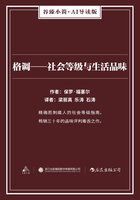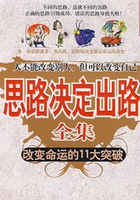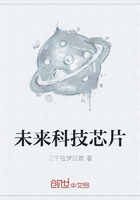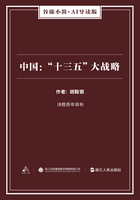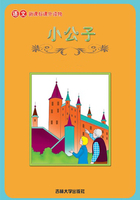Margarita--Madame Buondcorsi--The Duchess of Fiano--Cardinal Bernis--
The Princess Santa Croce--Menicuccio and His Sister I had made up my mind to spend a quiet six months at Rome, and the day after my arrival I took a pleasant suite of rooms opposite the Spanish Ambassador, whose name was d'Aspura. It happened to be the same rooms as were occupied twenty-seven years ago by the teacher of languages, to whom I had gone for lessons while I was with Cardinal Acquaviva. The landlady was the wife of a cook who only, slept with his better half once a week.
The woman had a daughter of sixteen or seventeen years old, who would have been very pretty if the small-pox had not deprived her of one eye.
They had provided her with an ill-made artificial eye, of a wrong size and a bad colour, which gave a very unpleasant expression to her face.
Margarita, as she was called, made no impression on me, but I made her a present which she valued very highly. There was an English oculist named Taylor in Rome at that time, and I got him to make her an eye of the right size and colour. This made Margarita imagine that I had fallen in love with her, and the mother, a devotee, was in some trouble as to whether my intentions were strictly virtuous.
I made arrangements with the mother to supply me with a good dinner and supper without any luxury. I had three thousand sequins, and I had made up my mind to live in a quiet and respectable manner.
The next day I found letters for me in several post-offices, and the banker Belloni, who had known me for several years, had been already advised of my bill of exchange. My good friend Dandolo sent me two letters of introduction, of which one was addressed to M. Erizzo, the Venetian ambassador. He was the brother of the ambassador to Paris.
This letter pleased me greatly. The other was addressed to the Duchess of Fiano, by her brother M. Zuliani.
I saw that I should be free of all the best houses, and I promised myself the pleasure of an early visit to Cardinal Bernis.
I did not hire either a carriage or a servant. At Rome both these articles are procurable at a moment's notice.
My first call was on the Duchess of Fiano. She was an ugly woman, and though she was really very good-natured, she assumed the character of being malicious so as to obtain some consideration.
Her husband, who bore the name of Ottoboni, had only married her to obtain an heir, but the poor devil turned out to be what the Romans call 'babilano', and we impotent. The duchess told me as much on the occasion of my third visit. She did not give me the information in a complaining tone, or as if she was fain to be consoled, but merely to defy her confessor, who had threatened her with excommunication if she went on telling people about her husband's condition, or if she tried to cure him of it.
The duchess gave a little supper every evening to her select circle of friends. I was not admitted to these reunions for a week or ten days, by which time I had made myself generally popular. The duke did not care for company and supped apart.
The Prince of Santa Croce was the duchess's 'cavaliere servante', and the princess was served by Cardinal Bernis. The princess was a daughter of the Marquis Falconieri, and was young, pretty, lively, and intended by nature for a life of pleasure. However, her pride at possessing the cardinal was so great that she did not give any hope to other competitors for her favour.
The prince was a fine man of distinguished manners and great capability, which he employed in business speculations, being of opinion, and rightly, that it was no shame for a nobleman to increase his fortune by the exercise of his intelligence. He was a careful man, and had attached himself to the duchess because she cost him nothing, and he ran no risk of falling in love with her.
Two or three weeks after my arrival he heard me complaining of the obstacles to research in the Roman libraries, and he offered to give me an introduction to the Superior of the Jesuits. I accepted the offer, and was made free of the library; I could not only go and read when I
liked, but I could, on writing my name down, take books away with me.
The keepers of the library always brought me candles when it grew dark, and their politeness was so great that they gave me the key of a side door, so that I could slip in and out as I pleased.
The Jesuits were always the most polite of the regular clergy, or, indeed, I may say the only polite men amongst them; but during the crisis in which they were then involved, they were simply cringing.
The King of Spain had called for the suppression of the order, and the Pope had promised that it should be done; but the Jesuits did not think that such a blow could ever be struck, and felt almost secure. They did not think that the Pope's power was superhuman so far as they were concerned. They even intimated to him by indirect channels that his authority did not extend to the suppression of the order; but they were mistaken. The sovereign pontiff delayed the signature of the bull, but his hesitation proceeded from the fact that in signing it he feared lest he should be signing his own sentence of death. Accordingly he put it off till he found that his honour was threatened. The King of Spain, the most obstinate tyrant in Europe, wrote to him with his own hand, telling him that if he did not suppress the order he would publish in all the languages of Europe the letters he had written when he was a cardinal, promising to suppress the order when he became Pope. On the strength of these letters Ganganelli had been elected.
Another man would have taken refuge in casuistry and told the king that it was not for a pope to be bound to the cardinal's promises, in which contention he would have been supported by the Jesuits. However, in his heart Ganganelli had no liking for the Jesuits. He was a Franciscan, and not a gentleman by birth. He had not a strong enough intellect to defy the king and all his threats, or to bear the shame of being exhibited to the whole world as an ambitious and unscrupulous man.






